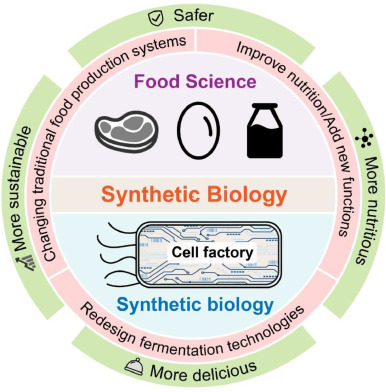Synthetic biology, an innovative fusion of biology and engineering, has the potential to become a primary driver towards achieving the United Nations' Sustainable Development Goals (SDGs). It employs cutting-edge technologies to construct or redesign biological systems and organisms that may not exist in nature, to solve intricate problems and challenges. It holds a crucial role in achieving SDG 3: Good Health and Well-being by developing novel strategies for disease diagnosis, treatment, and prevention through genetic engineering and creating synthetic vaccines.
Moreover, synthetic biology is instrumental in achieving SDG 2: Zero Hunger, by engineering crops for enhanced nutrition and resilience against pests and climate change, and in creating synthetic meat to reduce the environmental burden of traditional livestock farming. S
imilarly, synthetic biology helps in attaining SDG 6: Clean Water and Sanitation, by engineering microorganisms to degrade pollutants in water resources. Furthermore, it aids in the realization of SDG 7: Affordable and Clean Energy, by using engineered bacteria to produce biofuels, thus reducing our reliance on fossil fuels. Synthetic biology also contributes to SDG 13: Climate Action, through creating synthetic carbon sinks and developing microbes that capture CO2.
Lastly, it supports SDG 15: Life on Land, by combating biodiversity loss through de-extinction efforts and the creation of synthetic organisms to restore damaged ecosystems. However, the application of synthetic biology towards achieving the SDGs is not without challenges. Regulatory, ethical, biosafety, and biosecurity issues need careful consideration. The challenge is to ensure the responsible development and application of synthetic biology to harness its potential fully and safely in accomplishing the SDGs.
Alexis C.R. Hoste, Sigrid Görgen, Philippe Jacques, Chapter 10 - Increasing the natural biodiversity of microbial lipopeptides using a synthetic biology approach, Editor(s): Gloria Soberón-Chávez, In Foundations and Frontiers in Enzymology, Biosurfactants, Academic Press, 2023, Pages 203-247, ISBN 9780323916974
Food is essential to provide energy for human cellular metabolism, and is usually made from plants or animals. Beside plants and animals, other important food sources are made by microorganisms, typically products of fermentation (e.g bread, wine, beer, soy sauce, etc). Nowadays, because of the increasing environmental pollution, climate change and population growth, is becoming challenging to keep the food supply safe, nutritious and sustainable. Importantly, the development of the synthetic biology field enable the engineering of cells that can be used in food manufacturing.
Background: Synthetic biology is an emerging multidisciplinary area of research with the potential to deliver various novel agrifood applications. Its long-term adoption and commercialisation will depend on the extent to which the public accept synthetic biology and its different applications. Scope and approach: A mapping review of existing research on public perceptions of, and attitudes towards, synthetic biology and its applications to agriculture and food production was conducted.
John A. Gladysz is a Distinguished Professor of Chemistry at Texas A&M University, where he holds the Dow Chair in Chemical Invention. He began his academic career at the University of California, Los Angeles and has also held appointments at the University of Utah and Universität Erlangen-Nürnberg. His group's current research centers around organometallic chemistry and branches into catalysis, organic synthesis, enantioselective reactions, stereochemistry, mechanism, and materials and green chemistry. John A.

